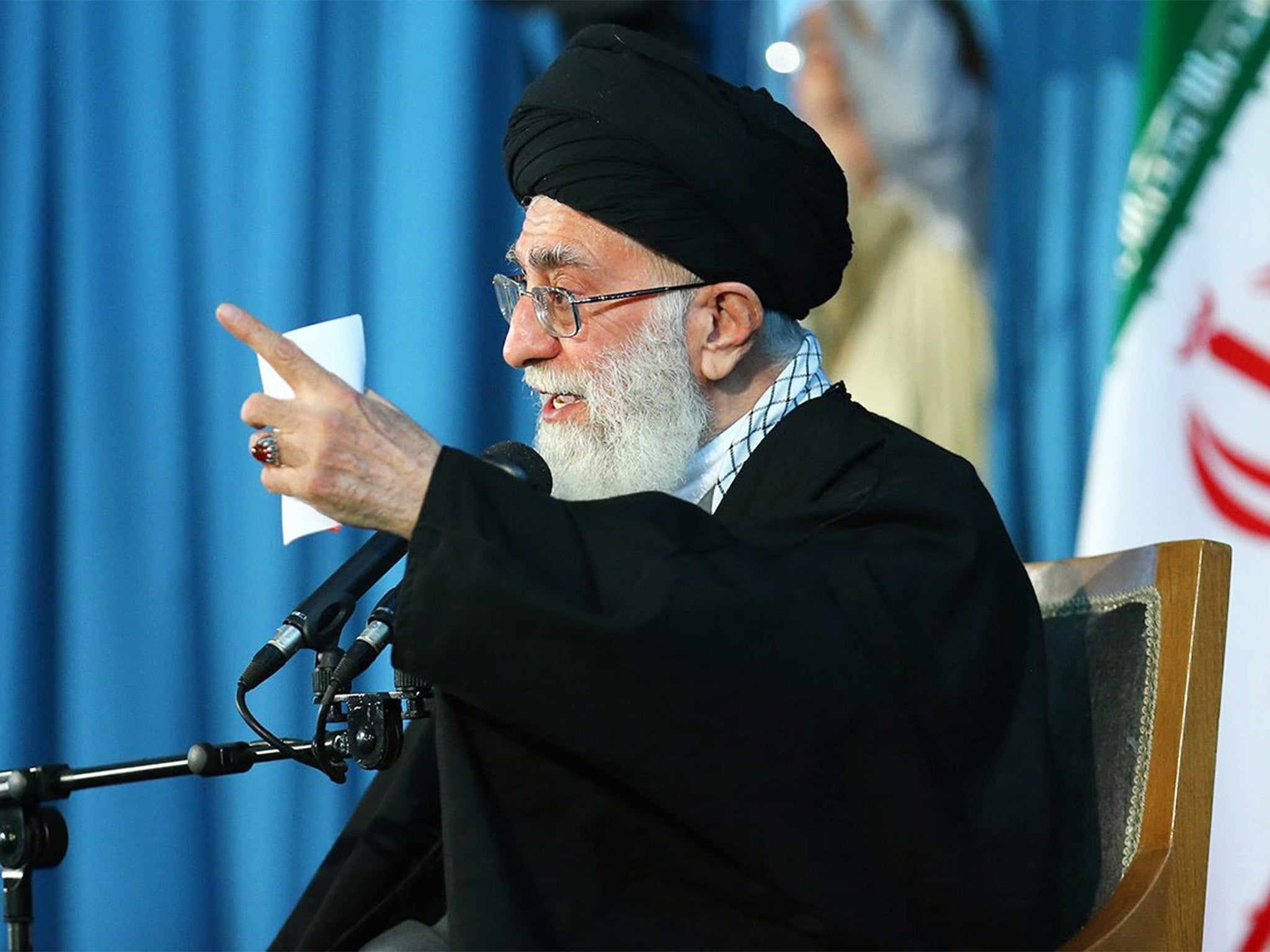Iran nuclear deal: Ayatollah Khamenei says hostile policies towards 'arrogant' America will not change
Supreme Leader suggests hardliners could yet block the accord in fiery address

Your support helps us to tell the story
From reproductive rights to climate change to Big Tech, The Independent is on the ground when the story is developing. Whether it's investigating the financials of Elon Musk's pro-Trump PAC or producing our latest documentary, 'The A Word', which shines a light on the American women fighting for reproductive rights, we know how important it is to parse out the facts from the messaging.
At such a critical moment in US history, we need reporters on the ground. Your donation allows us to keep sending journalists to speak to both sides of the story.
The Independent is trusted by Americans across the entire political spectrum. And unlike many other quality news outlets, we choose not to lock Americans out of our reporting and analysis with paywalls. We believe quality journalism should be available to everyone, paid for by those who can afford it.
Your support makes all the difference.The deal over Iran’s nuclear programme will not change the country’s opposition to America's “arrogant” policies in the Middle East, Ayatollah Ali Khamenei has said in his most comprehensive verdict on the accord so far.
In a fiery address at a mosque in Tehran to mark the end of Ramadan, the Supreme Leader suggested that Iranian hardliners could yet block the pact, adding that Iran’s hostile stance towards the United States remains unchanged.
Repeatedly using the phrase “whether this text is approved or not”, Ayatollah Khamenei said in the televised speech that Washington sought Iran’s “surrender” in the Middle East.
A major source of conflict with the US, Iran’s backing for its “friends” in the region - which include Syria, Hamas in Gaza, Hezbollah in Lebanon and Shia rebels in Yemen – would not alter because of the deal, the Ayatollah said.
"Whether the deal is approved or disapproved, we will never stop supporting our friends in the region and the people of Palestine, Yemen, Syria, Iraq, Bahrain and Lebanon. Even after this deal our policy towards the arrogant US will not change," he told an audience of hardliners who cried “Death to America” and “Death to Israel”.
Under the agreement with the UK, China, France, Russia, the US and Germany reached on Tuesday, sanctions will gradually be lifted in return for Iran accepting curbs on its nuclear programme. The West suspects the programme was aimed at making a nuclear bomb, something Iran denies.
"The Americans say they stopped Iran from acquiring a nuclear weapon," Khamenei said. "They know it's not true. We had a fatwa, declaring nuclear weapons to be religiously forbidden under Islamic law. It had nothing to do with the nuclear talks."
"We have repeatedly said we don't negotiate with the US on regional or international affairs; not even on bilateral issues. There are some exceptions like the nuclear programme that we negotiated with Americans to serve our interests.”
The Supreme Leader said American policies in the region were "180 degrees" opposed to Iran's and paid tribute to Iranian negotiators who thrashed out the accord in marathon negotiations in Vienna.
The speech contrasts with the warm language used to greet the pact by Iran’s president, Hassan Rouhani, and foreign minister, Mohammad Javad Zarif, who has said it could lead to co-operation in other areas. Ayatollah Khamenei has in the past appeared to back this view, so long as Washington act in good faith over the nuclear deal.
The exact process by which politicians in Iran will scrutinise the deal remains opaque. Mr Zarif will reportedly brief parliament on Tuesday and the agreement will also be examined the National Security Council, the country's highest security body.
Additional reporting by Reuters.
Join our commenting forum
Join thought-provoking conversations, follow other Independent readers and see their replies
Comments